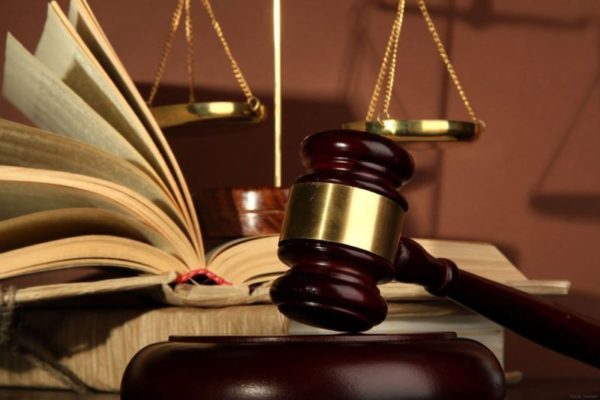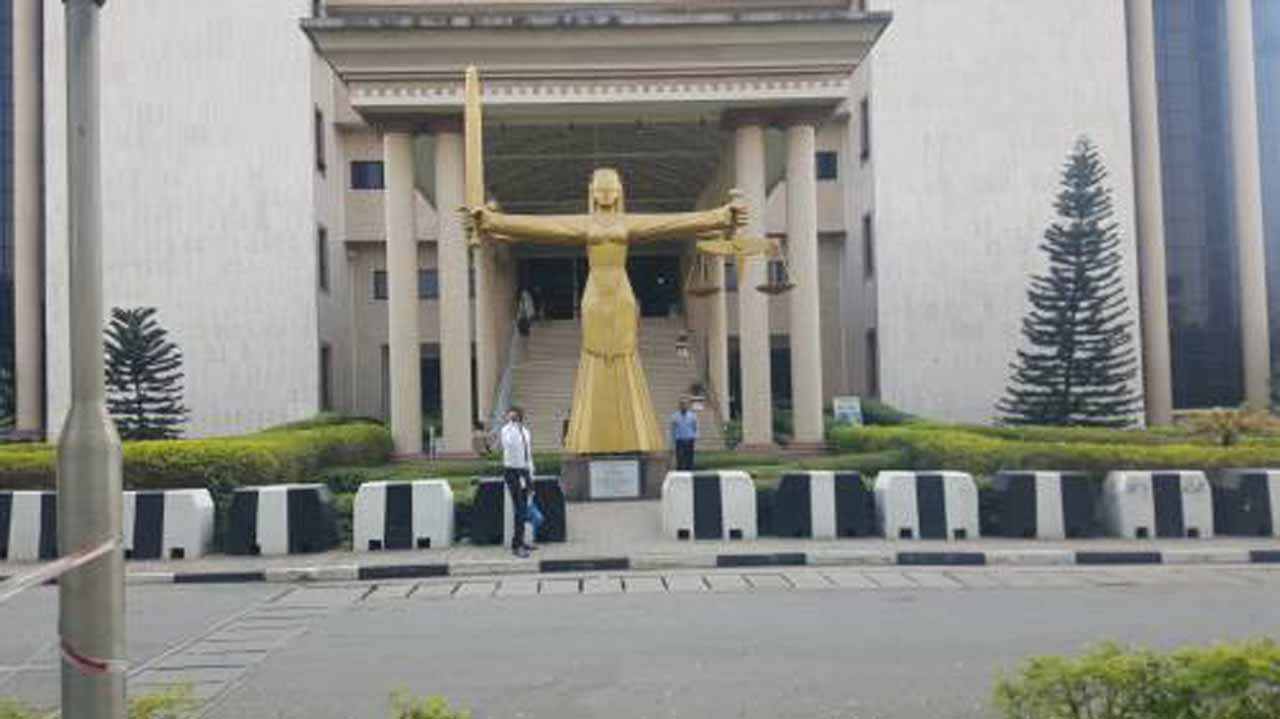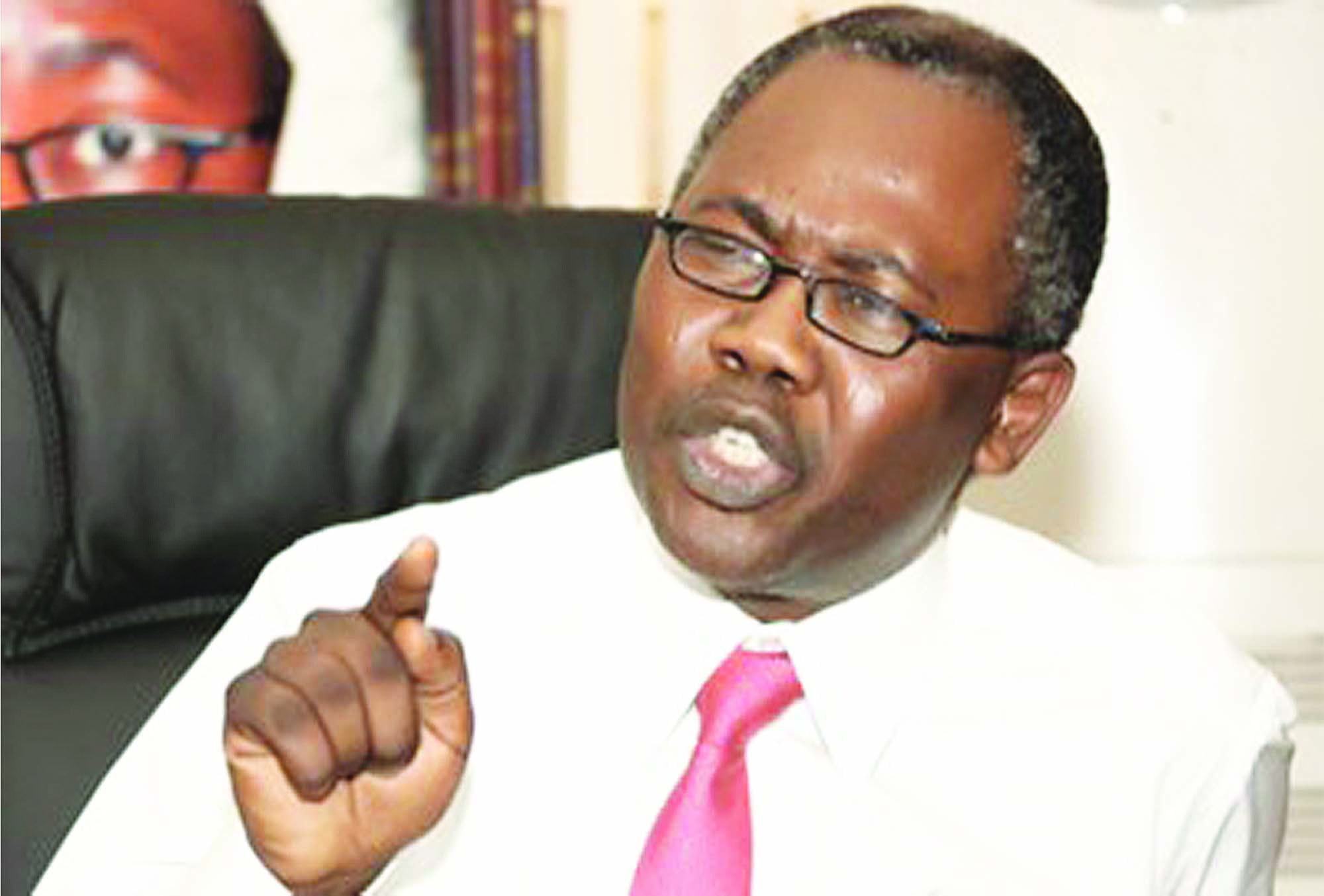Appeal Court Strikes Out Alleged N81.7m Bribery Charge Against Justice Nganjiwa
The Lagos state division of the Court of Appeal on Monday, struck out the charge of unlawful enrichment to the tune of $260,000 and N8,650,000 brought against Justice Hyeladzira Nganjiwa of the Federal High Court by the Economic and Financial Crimes Commission (EFCC).
In a judgment delivered by Justice Obaseki Adejumo, the appellate court held that the National Judicial Council (NJC) must first perform its constitutional role of disciplining the judge and recommending him for prosecution before the EFCC can file charges against him.
Justice Nganjiwa, who is one of the five judicial officers earlier suspended by the NJC, was arraigned June 23, 2017, by the EFCC on a 14-count charge of collecting bribes to pervert the course of justice, filed before Justice Adedayo Akintoye of the Lagos State High Court in Igbosere.
The commission claimed that the judge received the money through his bank account between 2013 and 2015.
The EFCC also alleged the sums did not correspond with the judge’s salary and he could not explain the source of the funds.
Before he was arraigned, his lawyer, Chief Robert Clarke (SAN) had filed a preliminary objection insisting that the court did not have the jurisdiction to hear the case because it is only the NJC that is constitutionally empowered to discipline a serving judge.
Justice Nganjiwa had also argued through his lawyer that the charge ‘improperly’ addressed him by not referring to him as a judge.
Clarke, who cited Section 6 (6)(a) of the 1999 Constitution, submitted that the due process of law requires that any misconduct committed by a sitting judicial officer should firstly be investigated and handled by the NJC.
The senior lawyer said, “The prosecutor is EFCC for Attorney-General of Lagos State, who are both members of the executive arms of government.
“The 1999 Constitution of Nigeria as amended has ensured separation of powers within the arms of the government and provided for discipline of erring judicial officers, he submitted.
However, EFCC counsel, Rotimi Oyedepo, contended that the application by the defense, “is asking the court to immune the defendant from prosecution because he is a sitting judge.”
Oyedepo, who cited Sections 308 and 35 (1) (c) of the constitution to support his argument, stated that the defendant does not fall within the persons immune from prosecution.
He also said that the NJC has only administrative disciplinary powers to sanction the defendant for any misconduct.
The lawyer submitted that, “The charge was brought against Nganjiwa in his personal capacity.
“The applicant (defendant) misconstrued the charge. We are not asking for the removal of the applicant from office.
“The misconduct in the charge which constitutes an offence in Lagos State is still liable to be determined by this court.
In her ruling, Justice Akintoye threw out the application, holding that “It is trite in law that the court can entertain and determine the right of any citizen no matter their status.
Citing Section 6(6) of the 1999 Constitution, the judge held that it is not correct that the High Court of Lagos State does not have jurisdiction to entertain this matter.
She stated, “The defendant here is a judicial officer of the Federal Government sitting in the Federal High Court, Bayelsa Division. The EFCC is an agency of government. Is there any law that excludes judicial officers from being charged?
“I affirm that the NJC has power to discipline any judicial officer, but judicial officers are not covered from being charged with criminal liability.
“It is only the office of the president, vice-president, governor or executive governor of any state that are immune. So the defendant does not have immunity under Section 308 of the 1999 Constitution.
“The court has been properly constituted and has the power to try the case. The notice of preliminary objection, I hold, is therefore, misconceived and same is hereby dismissed.”
But on November 22, Justice Akintoye had withdrawn from the case after allegations of bias were made against her by Justice Nganjiwa.
The judge sent the case file back to the Chief Judge of Lagos for re-assignment to another judge.




